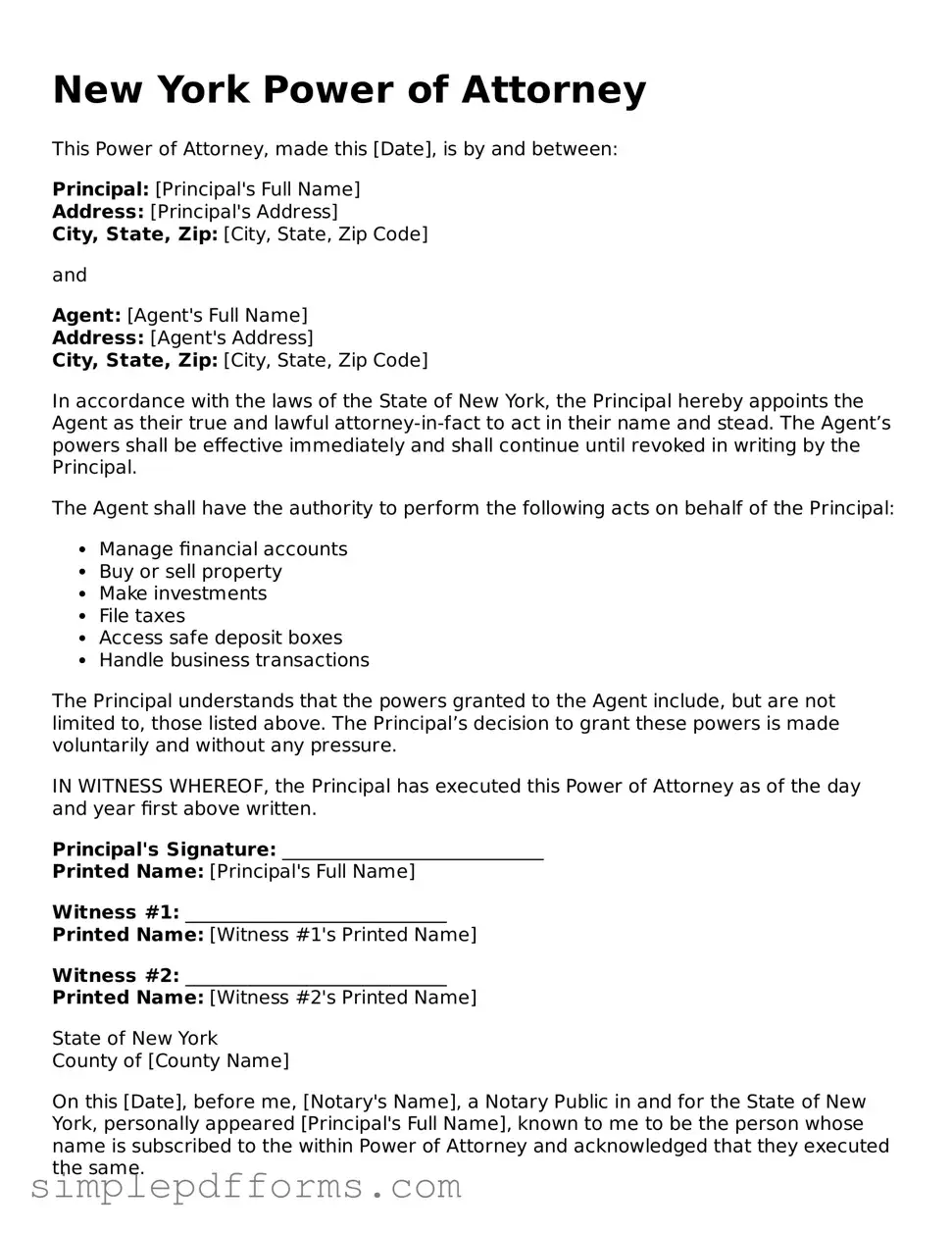Attorney-Verified Power of Attorney Document for New York State
A Power of Attorney form in New York is a legal document that allows one person to grant another the authority to act on their behalf in financial or legal matters. This form can be crucial for ensuring that your wishes are respected when you are unable to make decisions for yourself. Understanding its components and implications is essential for anyone considering this important legal tool.
Open Power of Attorney Editor Now

Attorney-Verified Power of Attorney Document for New York State
Open Power of Attorney Editor Now

Open Power of Attorney Editor Now
or
Get Power of Attorney PDF Form
Your form is waiting for completion
Complete Power of Attorney online in minutes with ease.